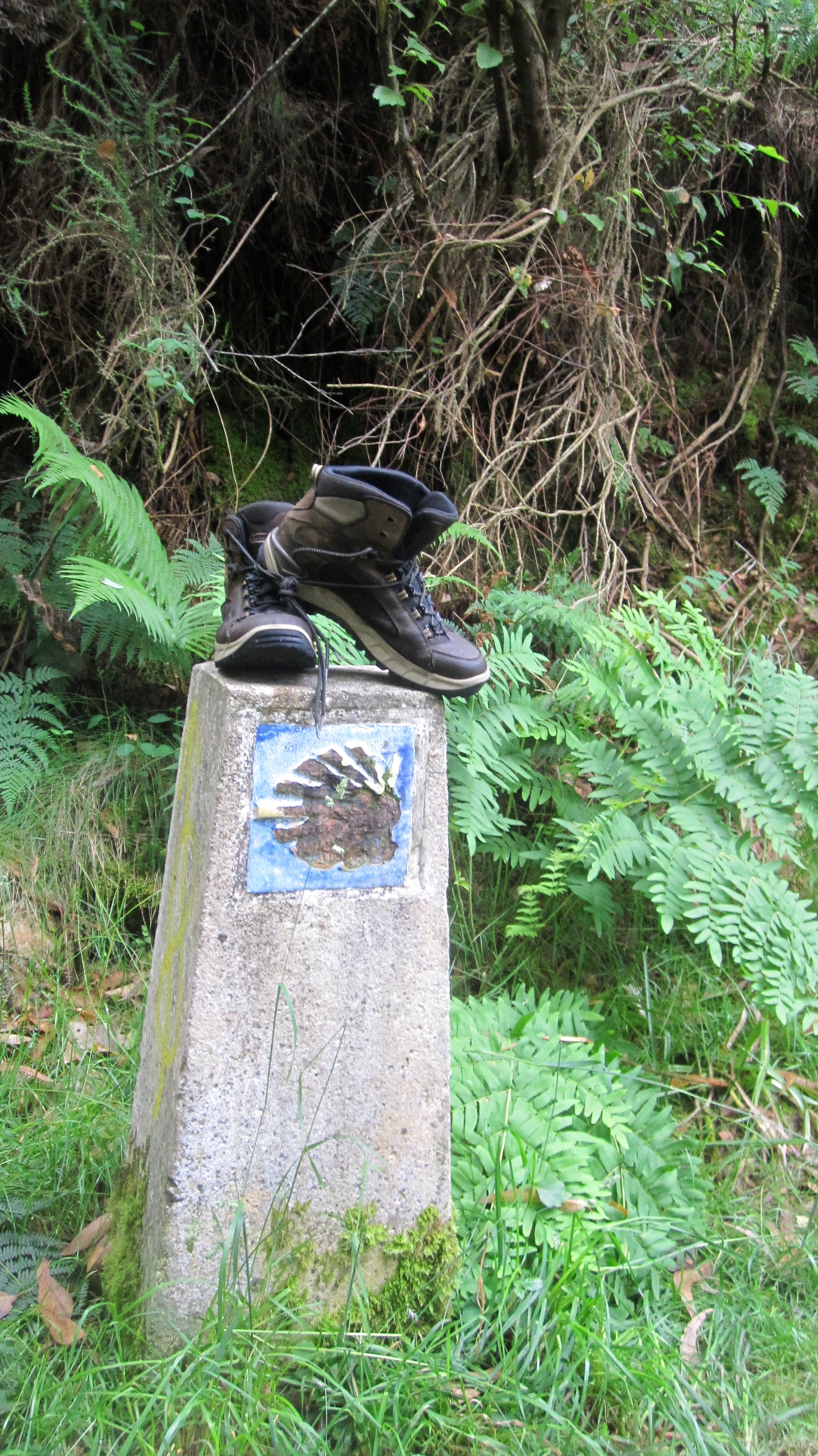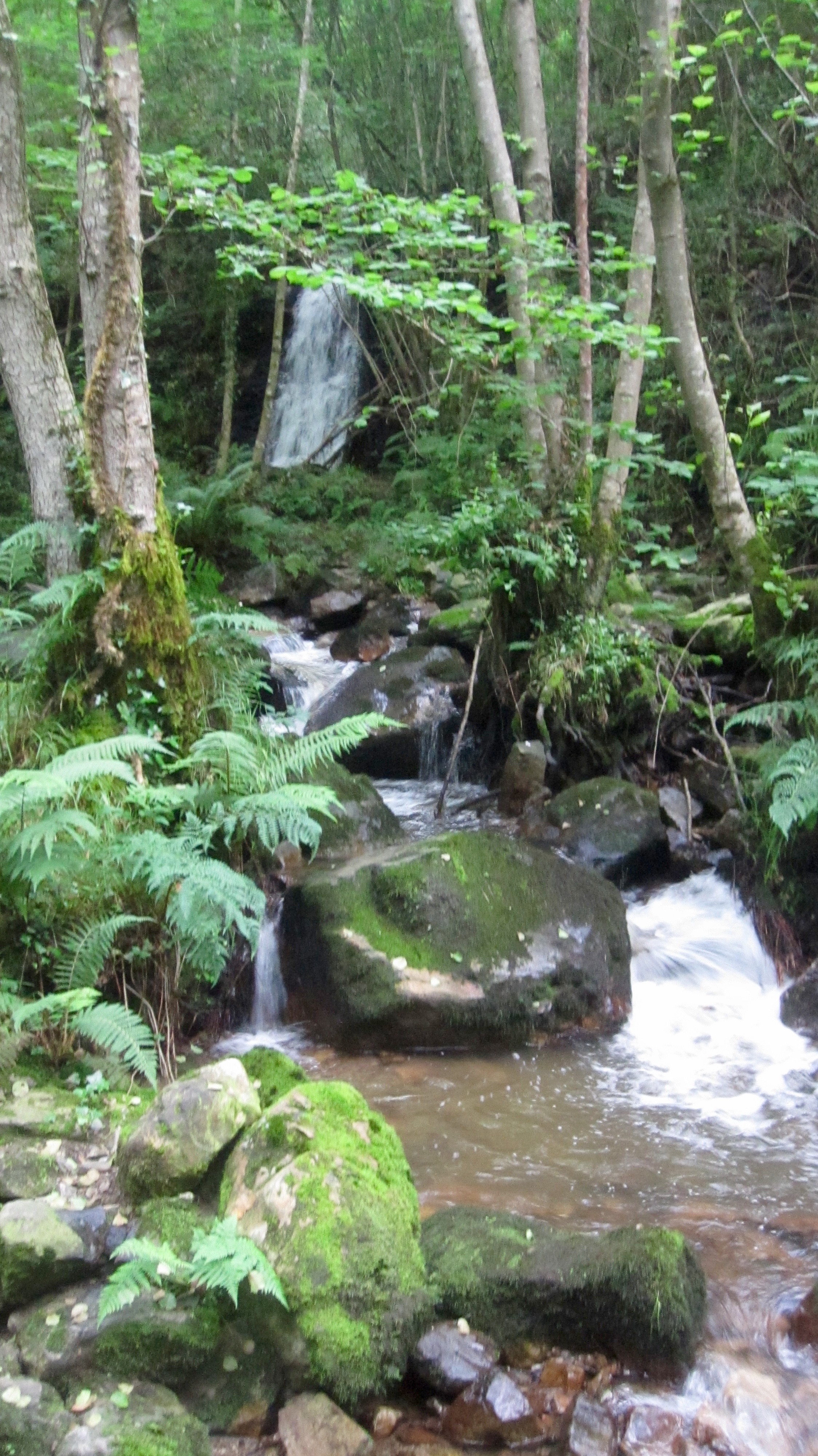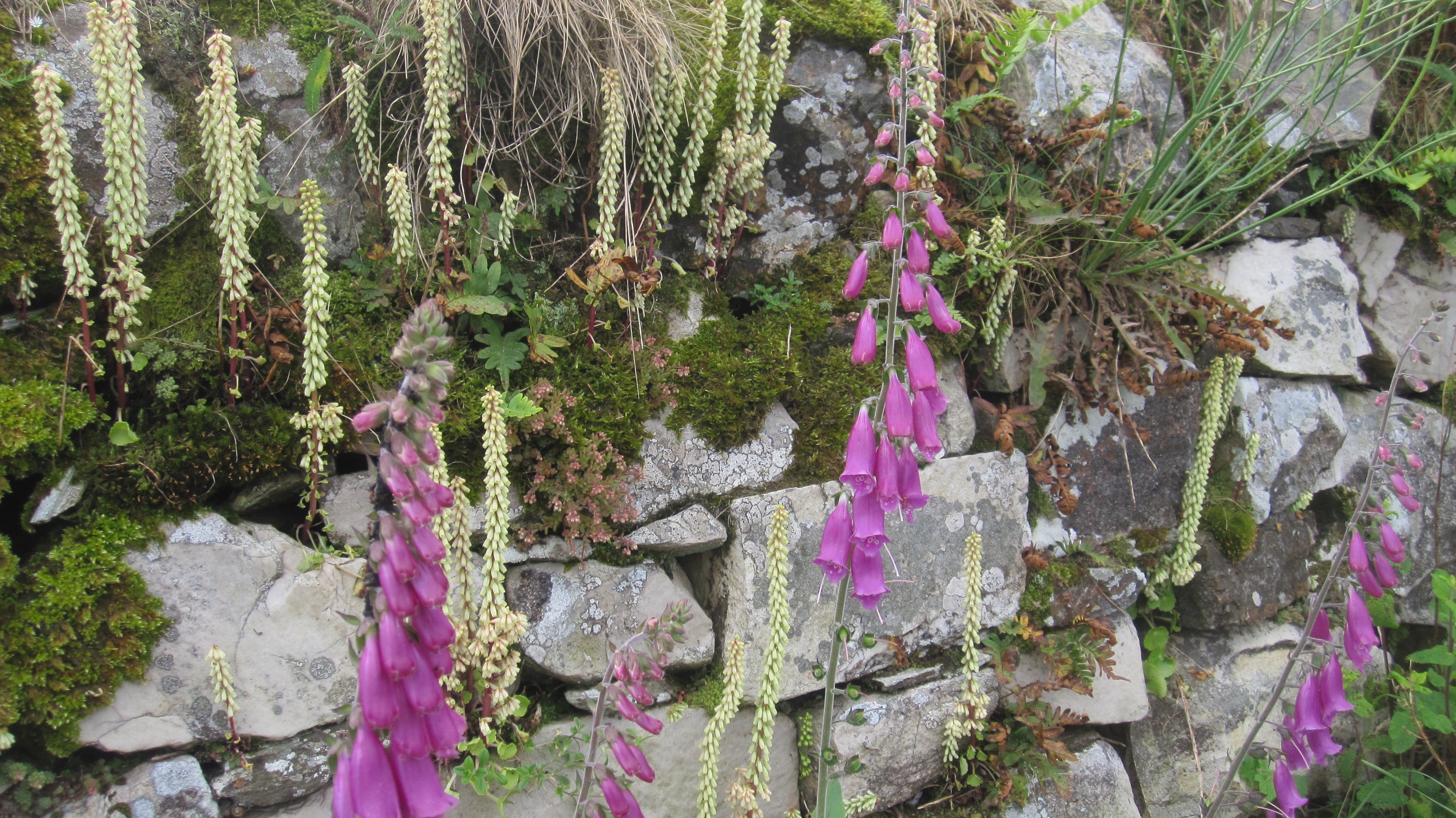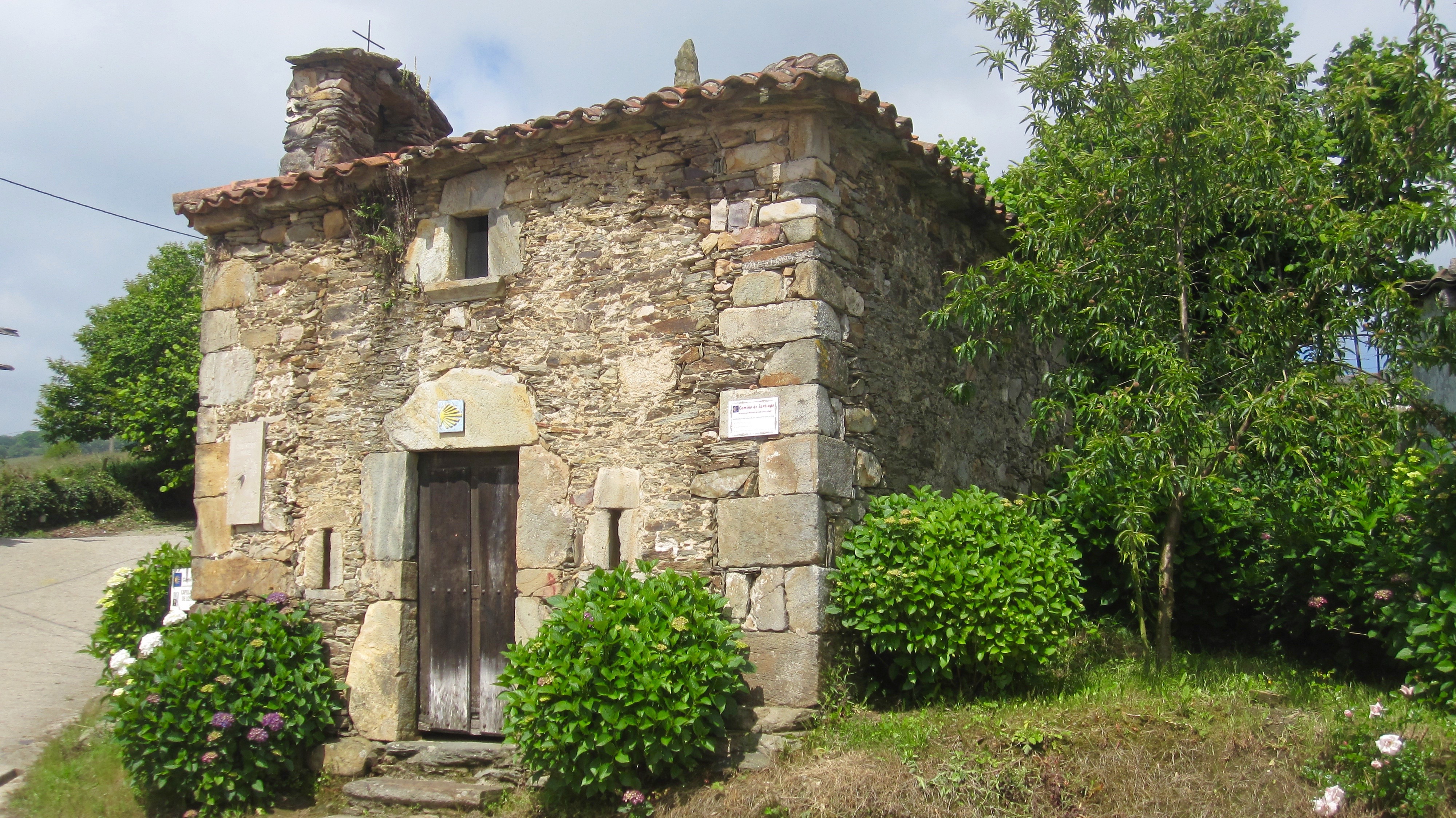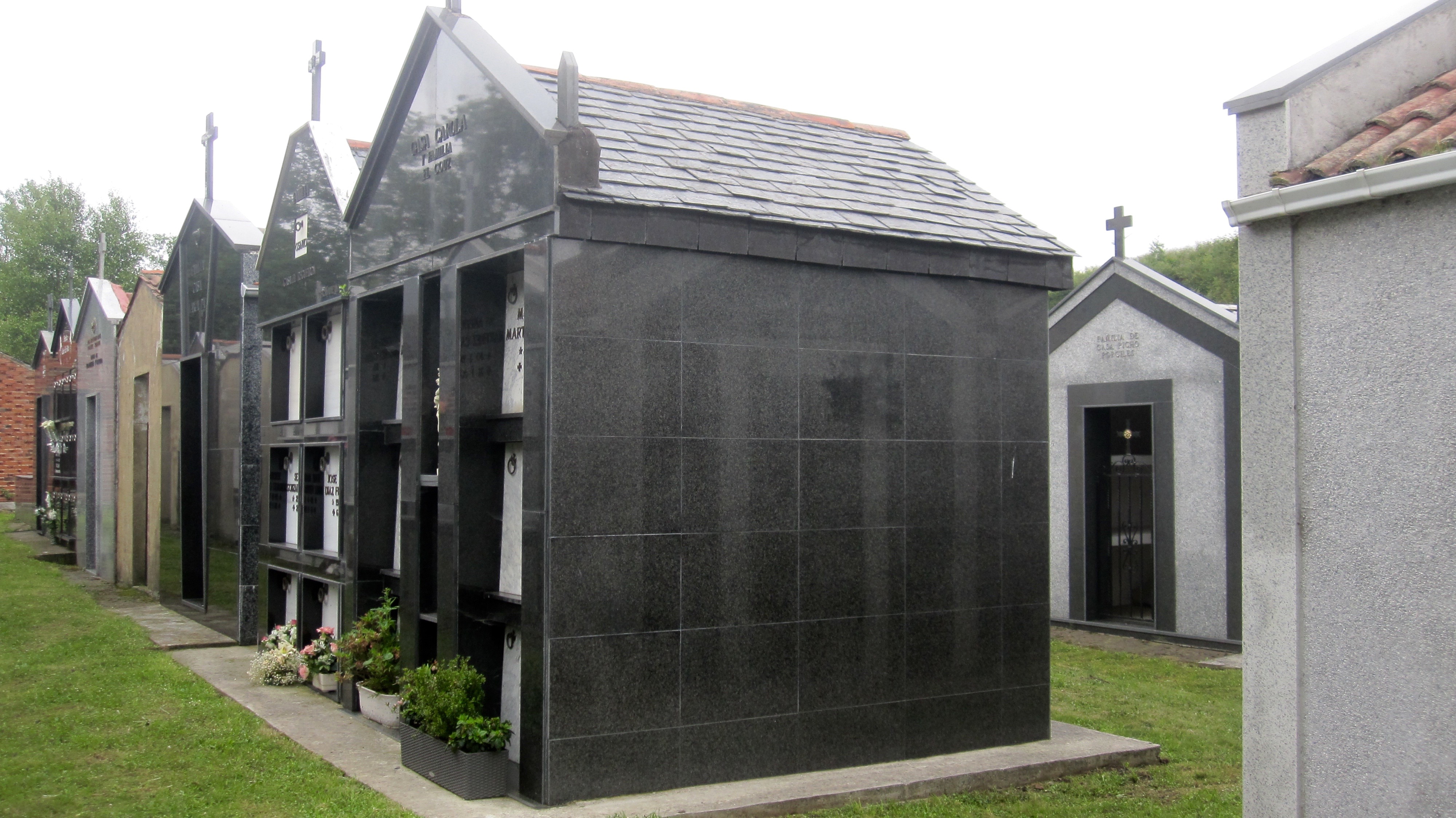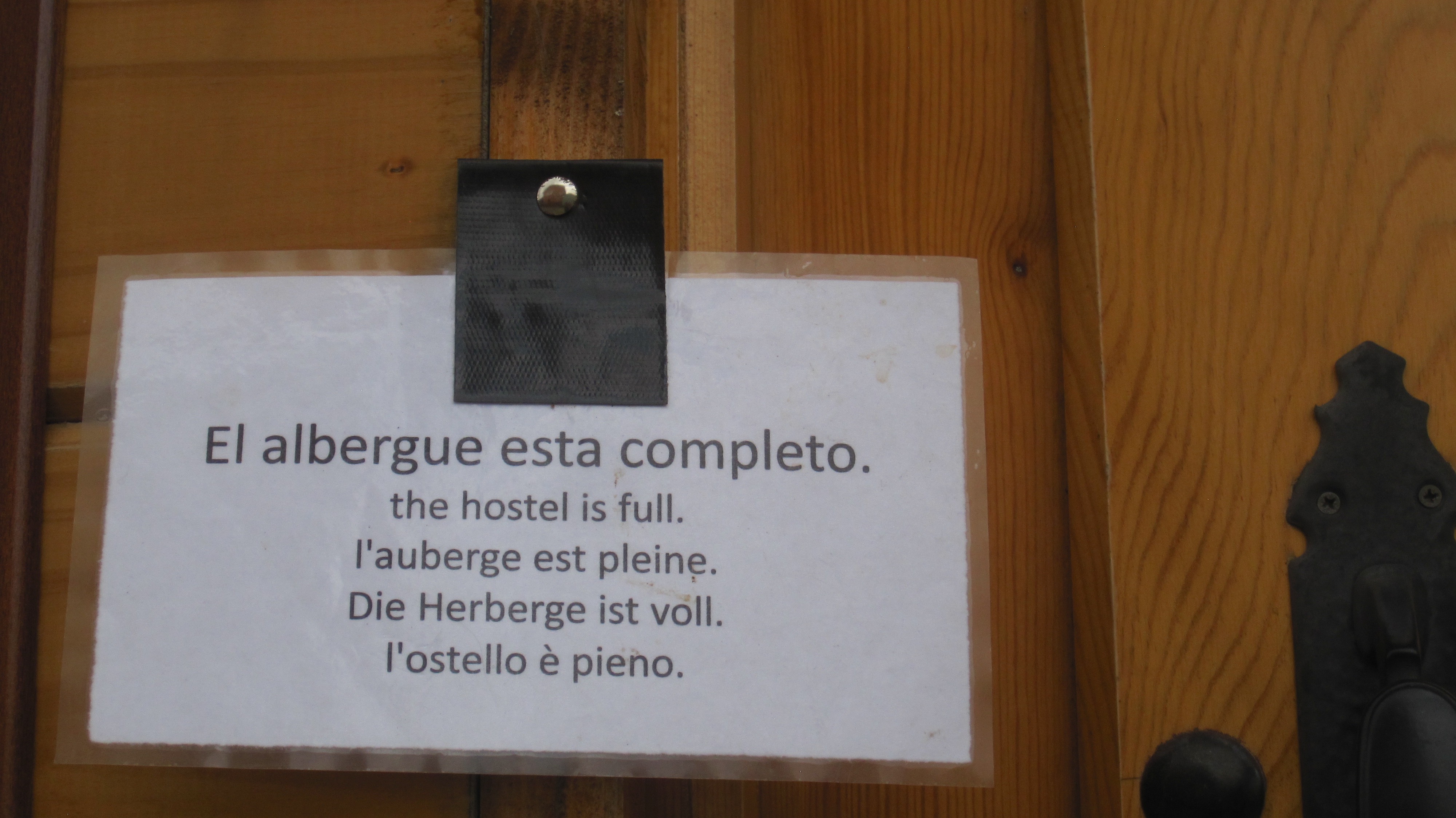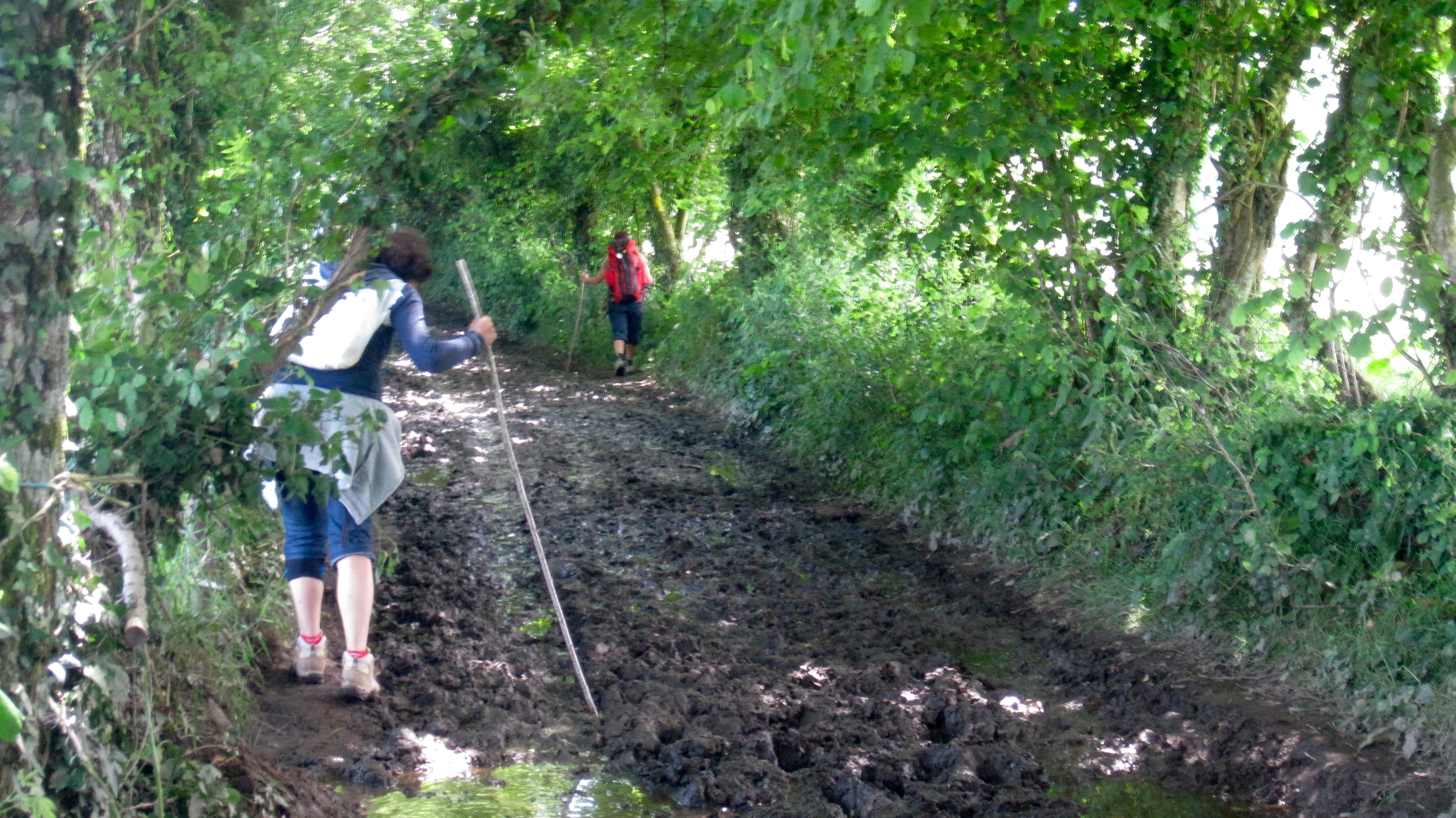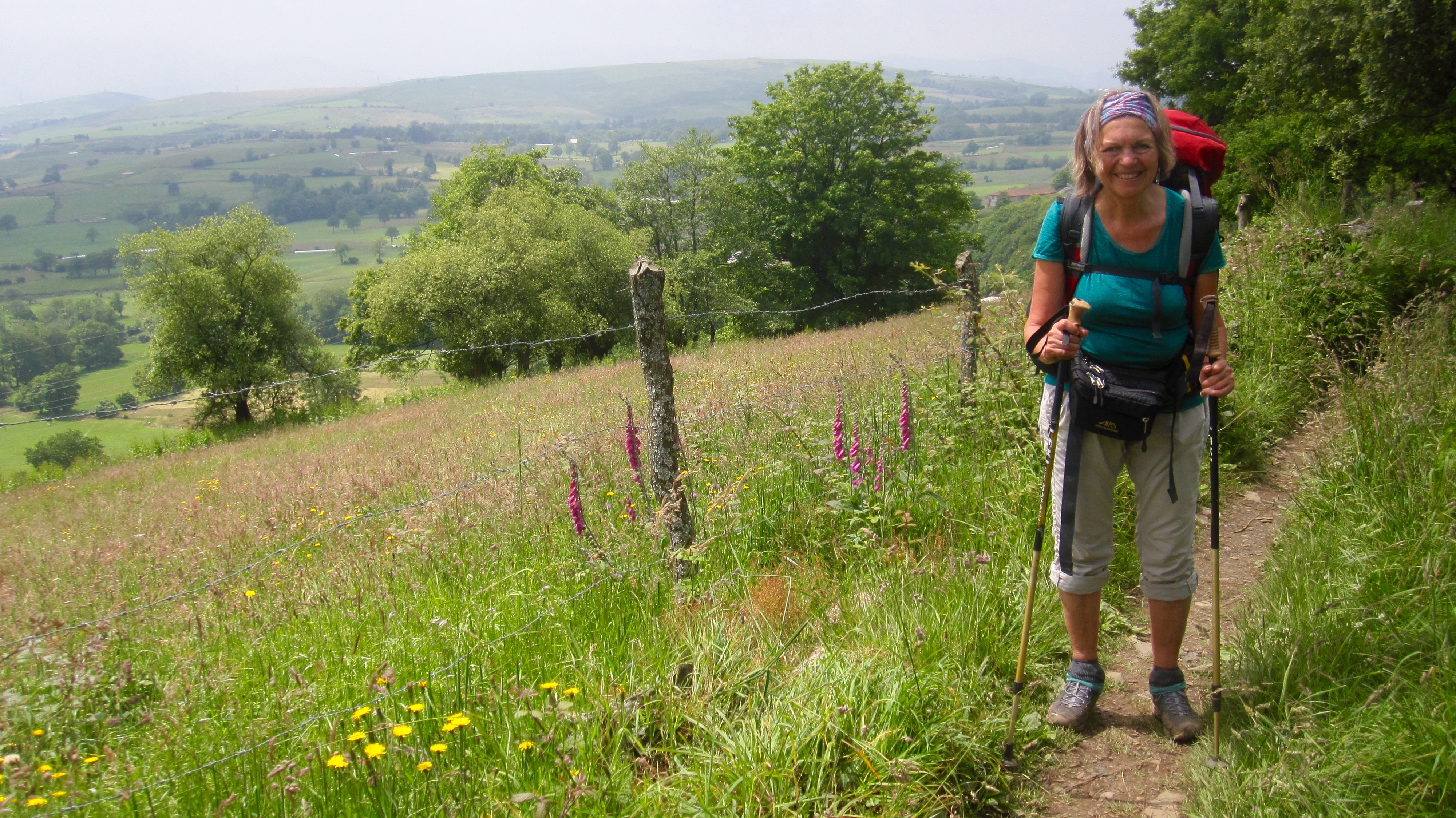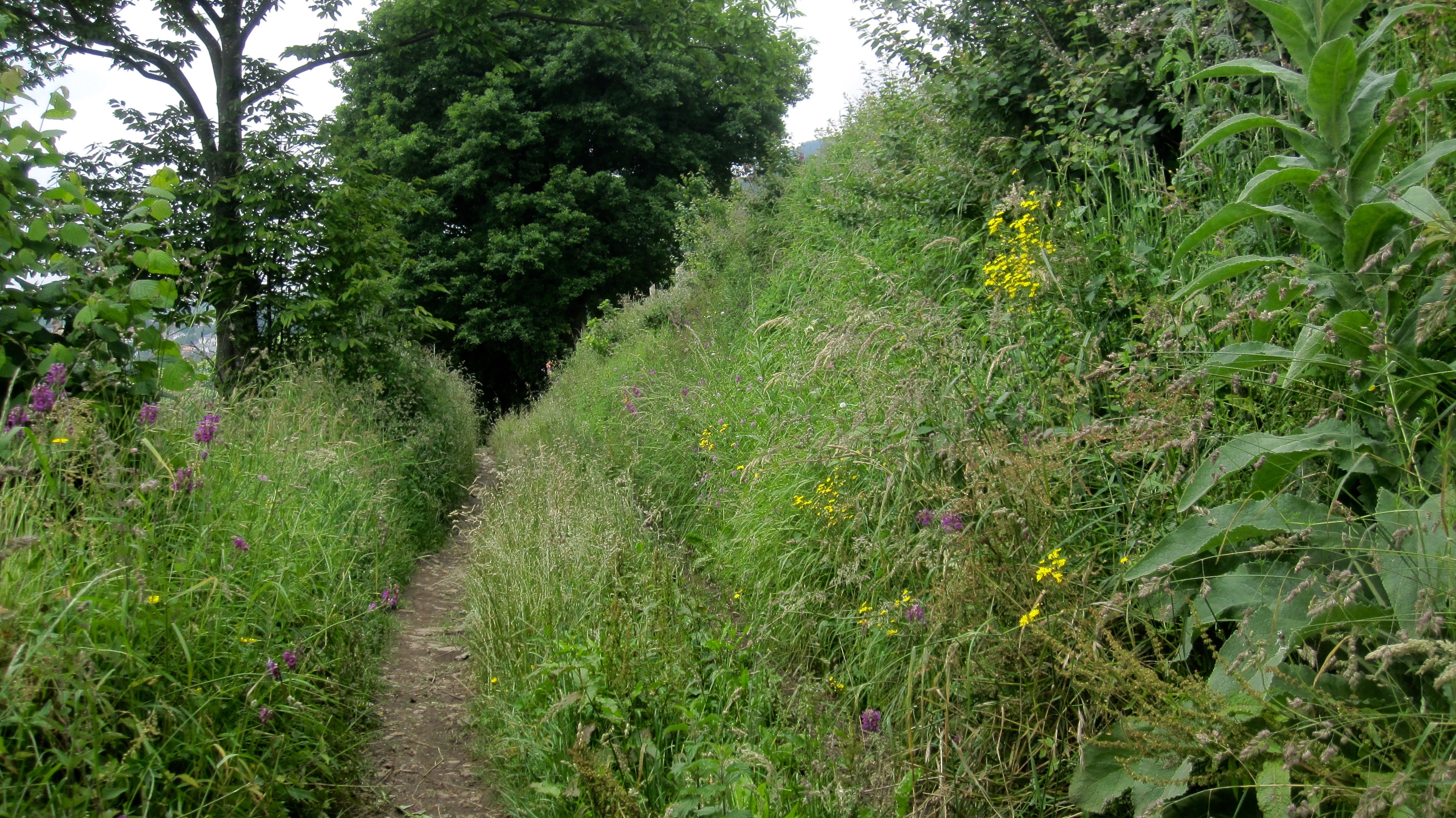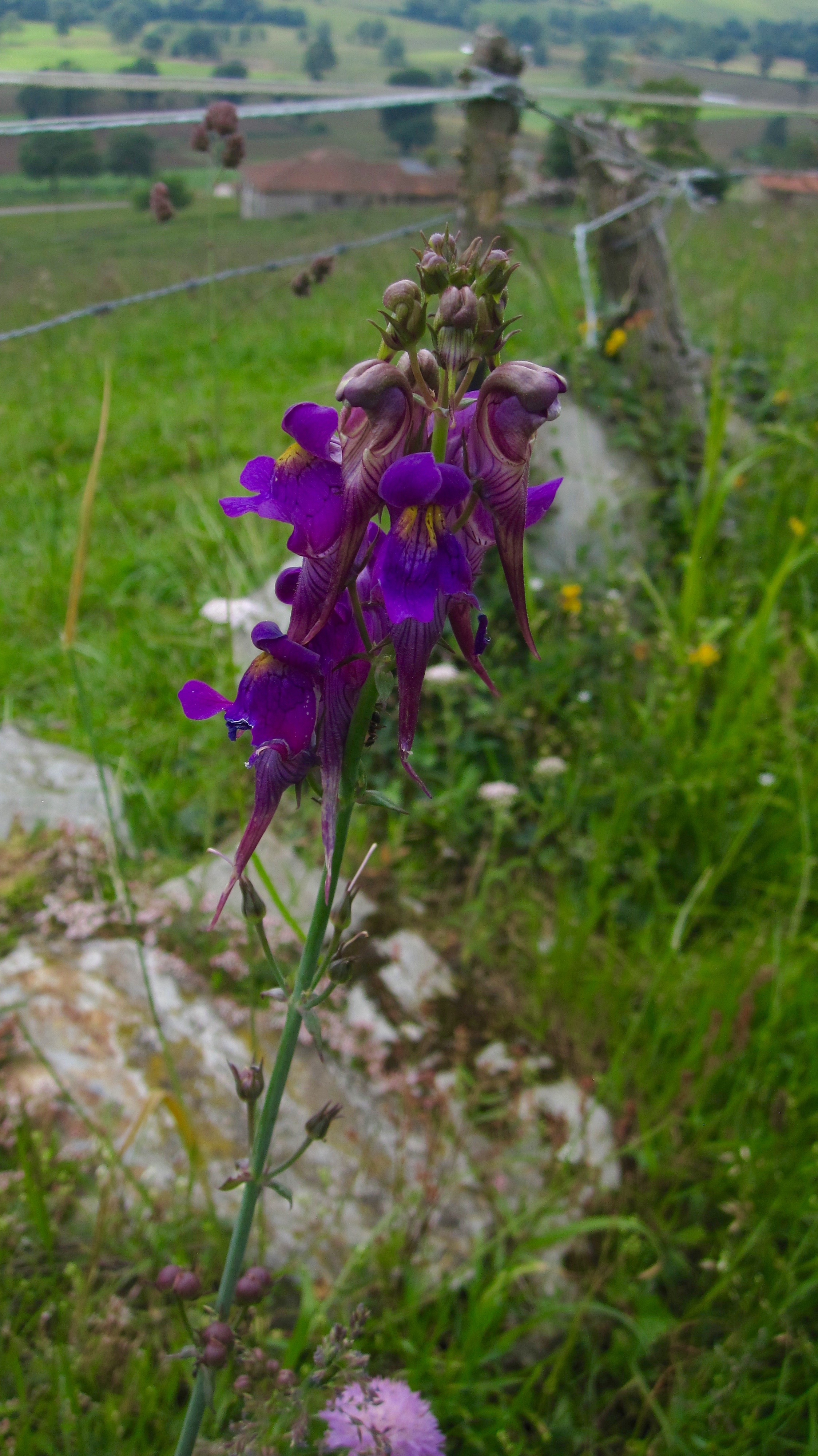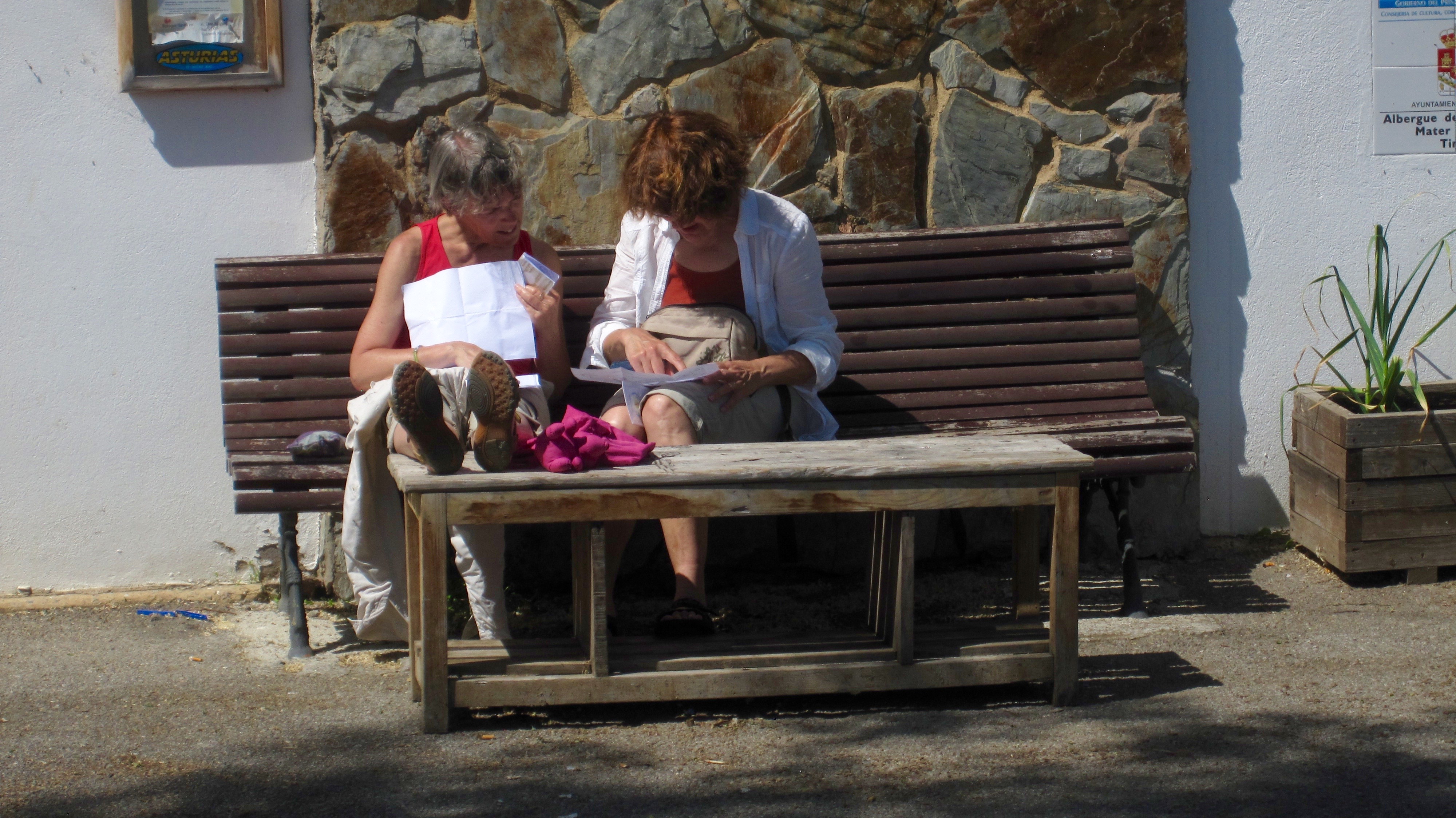Walking constantly and slowly uphill, little waterfalls, stonewalls overgrown with moss and flowers and ancient chapels made the path a pure treat.
Another pair of shoes left on the way
Foxclove
Ancient stone chapel El Christo de los Afligidos (15th century) used in former times also as a Hospiz.
The Camino often passes the typical Spanish cemeteries – tiny houses standing side-by-side surrounded by a wall.
Spanish cemetery
In Bedenaya, I passed the highly recommended private albergue. Even in early morning the albergue was filled already for the night.
Past rain and tunnels of trees, where hardly any sunshine can penetrate through the leaves, made the path to a muddy adventure. Sometimes there was no way out but to just step into the sludge.
But other times the path was winding through the meadows like a dry little creek.
It was pure joy walking on it, feeling the ground, listening to birds and bees and discovering flowers I never saw before.
Late afternoon, I arrived in the town Tineo. Its history goes back to the Romans. The town became rich during the Roman times because of the gold found in the area.
In the middle Ages, a law forced every pilgrim on the Camino Primitivo to walk through Tineo. This became a very profitable source of income for the town.
Ann (from France) and Andreja (from Slovenia) in front of the public albergue in Tineo studying the map

